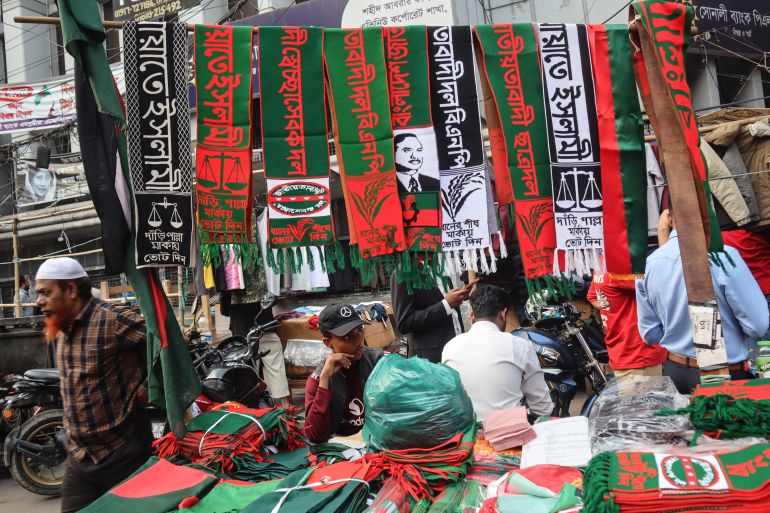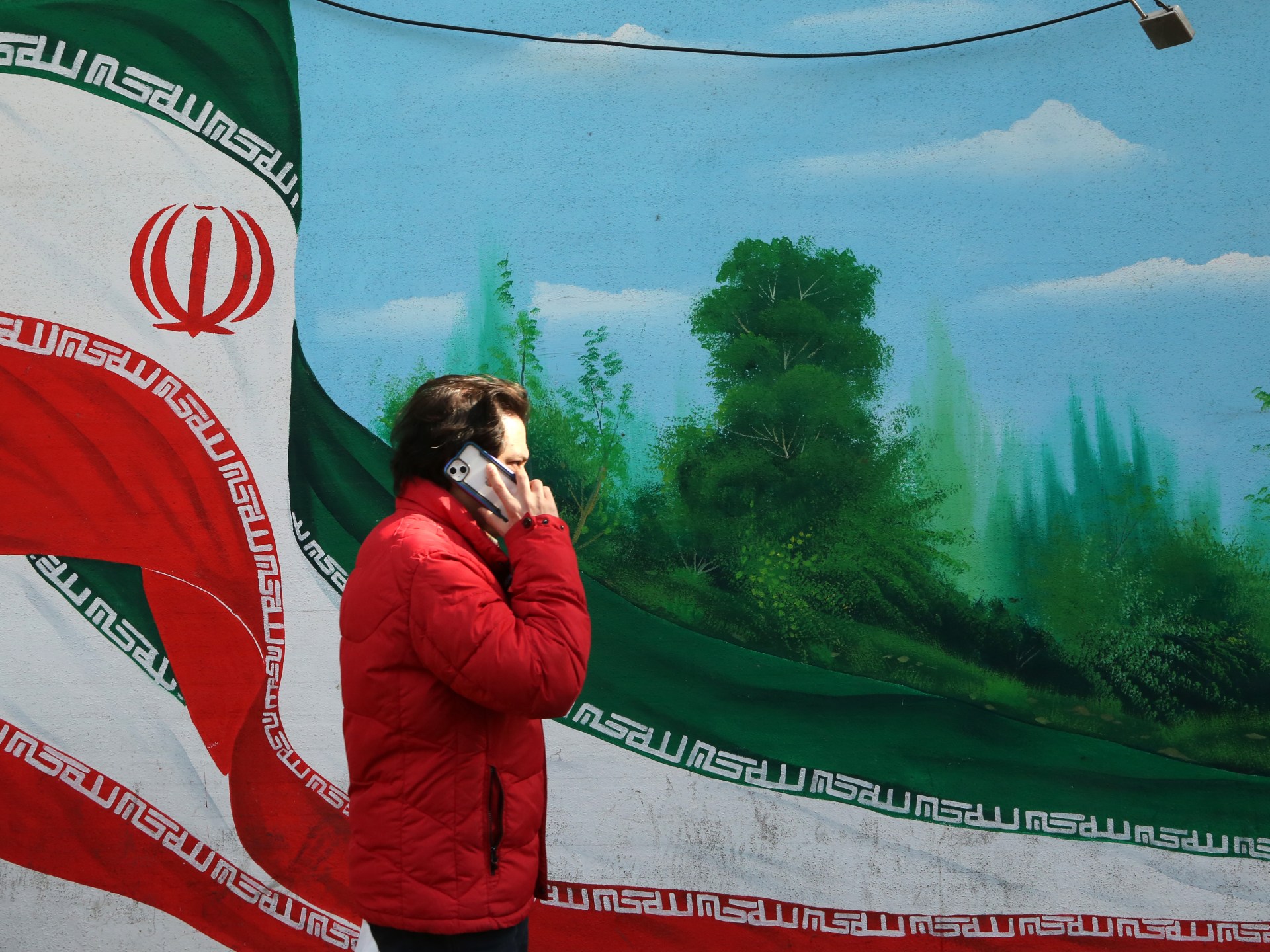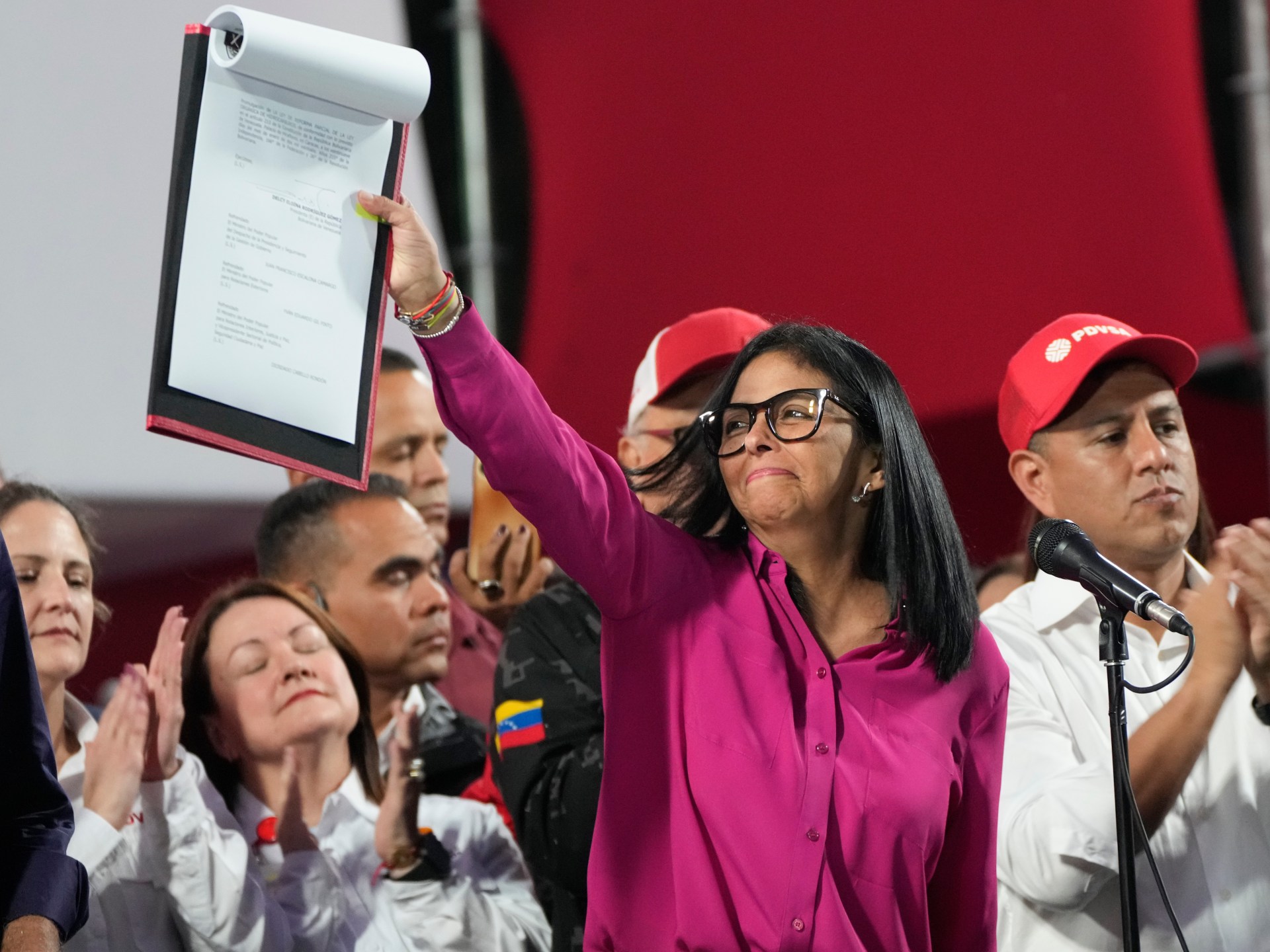President Donald Trump says he is speaking to Iran’s leadership amid a significant US military build-up in the Middle East, as regional leaders push for diplomacy to avoid a new conflict.
Trump says speaking to Iran amid rising war fears


President Donald Trump says he is speaking to Iran’s leadership amid a significant US military build-up in the Middle East, as regional leaders push for diplomacy to avoid a new conflict.

Gaza City — After 18 years as a teacher with an UNRWA-run school, Maryam Shaaban (name changed for safety reasons) fainted upon learning she was among 600 employees dismissed from their posts, the latest in a barrage of devastating blows borne out of Israel’s genocidal war on the besieged enclave.
Earlier in January, the United Nations agency for Palestinian refugees (UNRWA) announced a series of harsh austerity measures, including a 20 percent salary cut for local staff in Gaza, reduced working hours, and the termination of contracts for employees based outside Gaza who had been previously placed on “exceptional leave”.
list of 3 itemsend of list
According to a letter sent to affected staff by UNRWA Commissioner-General Philippe Lazzarini, the agency said it was forced to take steps due to a severe financial shortfall in its 2026 budget of some $220m.
The deficit threatens the agency’s ability to meet core operational obligations, including staff salaries and the continuation of essential humanitarian programmes.
Shaaban, 52, who is currently displaced in Egypt with her injured husband, began working with the UN agency in 2007 as a teacher at one of the agency’s schools in Jabalia, northern Gaza.
Like most residents of Gaza, she suffered a heavy price during Israel’s genocidal war.
She was displaced with her family from Jabalia to Nuseirat, in central Gaza, where they took refuge in her brother’s home. In December 2023, they were hit by a direct Israeli air attack that killed 15 people and injured dozens.
Among the victims were Maryam’s 22-year-old daughter, her brother, and his entire family.
![]()
Sustained Israeli campaigns to decimate and denigrate the agency have escalated to unprecedented levels.
Israel has repeatedly accused the agency of being lenient or complicit with Palestinian armed groups, without providing verifiable evidence. These are allegations UNRWA has vehemently denied, stressing that it takes disciplinary action against any employee proven to be involved in wrongdoing.
In 2025, the Israeli Knesset passed legislation effectively banning the agency’s operations in areas it considers part of “Israeli sovereignty”, including occupied East Jerusalem, claiming the agency poses a security threat.
The agency rejected the law as illegal and said it places it in direct confrontation with Israeli authorities.
As of this month, the UN agency has recorded deaths in Israeli attacks of more than 380 of its staff members in Gaza since October 2023.
Earlier this month, Israel sent in bulldozers, partially destroying UNRWA’s headquarters in East Jerusalem. Israeli lawmakers and members of the far-right government were also present, according to Lazzarini, who said the attack came “in the wake of other steps taken by Israeli authorities to erase the Palestine Refugee identity”.
As a UN agency, it enjoys international legal status. UN Secretary-General Antonio Guterres warned Prime Minister Benjamin Netanyahu earlier in January that he could take Israel to the International Court of Justice (ICJ) if it does not repeal laws targeting UNRWA and return its seized assets and property.
Maryam herself sustained minor injuries in the Israeli attack, while five of her children also suffered injuries. Her husband was critically wounded in the neck.
In April 2024, she left Gaza as a medical companion to her spouse, who was referred for treatment at an Egyptian hospital. She was forced to leave behind the rest of her children in Gaza, including those who were wounded.
“It feels like leaving for treatment and escaping death has become a crime we are being punished for,” Maryam told Al Jazeera by phone, her voice breaking with tears.
“Wasn’t it enough that I spent all this time grieving for my injured children, being away from them and constantly worried about them while accompanying my husband in treatment? They added to our wounds by dismissing us from our jobs. By what law does this happen?”
For Maryam and many others who were displaced outside Gaza during the war, the blow was especially severe, as it followed a February 2025 decision to place them on “exceptional leave” despite the fact that many of them continued teaching remotely.
“All my children are injured and have metal plates in their limbs. They suffered immensely after my salary stopped,” said the mother of eight.
In the past two weeks, the crisis has extended to employees who remain in the Strip, after the agency decided to cut their salaries by 20 percent, a move that has further deepened their humanitarian suffering amid Gaza’s catastrophic conditions.
The financial shortfall comes amid a decline in international donations, which had long formed the backbone of UNRWA’s budget, particularly after several donor states froze their contributions following Israeli allegations against some of its employees.
UNRWA provides essential services to millions of Palestinian refugees, who make up about 70 percent of the Gaza population, including education, healthcare, and social assistance, playing a central role in maintaining a minimum level of stability amid repeated Israeli wars and restrictions on crossings.

There has been widespread anger and protests among UNRWA staff in Gaza, both inside and outside the Strip, who argue that the measures disproportionately target Gaza compared with the agency’s other five areas of operation: the occupied West Bank, Jerusalem, Jordan, Lebanon, and Syria.
Mustafa al-Ghoul, head of the UNRWA staff union in Gaza and a dentist who has worked with the agency for 29 years, questioned why Gaza — the most devastated and afflicted area — was chosen as the first sacrifice.
“All the measures started in Gaza, as if Gaza is not already overwhelmed by death, destruction, and hunger,” he told Al Jazeera, standing in front of their partially destroyed headquarters in Gaza City.
Of some of the 600 dismissed Palestinian employees who were outside Gaza, the cutting off of their salaries and savings without prior notice, al-Ghoul said, “Some are sick. Some have cancer. Some were on official leave. Some lost their entire families. Some left to treat a grandchild, and then they are punished with dismissal and deprivation of their rights.”
“Gaza needs someone to heal its wounds. Gaza is dying. You see tents, death, and destruction everywhere. Gaza needs compassion, not dismissals and the drying up of its lifelines,” al-Ghoul appealed to UNRWA’s leadership.

Union warnings about the consequences of UNRWA cuts are already visible in the scarred daily lives of displaced Palestinians in Gaza, particularly in education, healthcare and food security.
This decline is reflected in the testimony of Jihan al-Harazin, 28, a mother of three, displaced in Gaza City, whose family relied almost entirely on the agency’s services.
“UNRWA was the backbone of our survival, in health, education, and food. It provided everything,” she told Al Jazeera.
That reality, however, has changed dramatically since the war began.
“Now, there is nothing,” Jihan said, referring to the food aid that UNRWA has not been able to distribute for months.
Since October 2023, all humanitarian agencies, particularly the UN egency, have faced persistent obstacles in delivering aid to Gaza.
On multiple occasions, Lazzarini accused Israel of using humanitarian aid as a political tool. He said Israel is using aid to Gaza “as a weapon” to deepen civilian suffering.
Amjad Shawa, director of the Palestinian NGOs Network (PNGO) in Gaza, told Al Jazeera that UNRWA represents “the backbone of humanitarian work in the Palestinian territory”, stressing that its role extends beyond services to the political core of the refugee issue as one of the last pillars of humanitarian and social stability in Gaza.
“UNRWA carries a central cause for our people, the refugee cause itself. It was established by a UN General Assembly resolution and has operated for decades,” he said.
Al-Shawa said the agency is facing “continuous Israeli incitement” alongside Israeli bans on its operations in the occupied Palestinian territory, particularly Gaza, and the obstruction of humanitarian aid.
He warned that weakening UNRWA serves Israel’s agenda to erase the Palestinians’ right of return and compensation. That has been a key goal of the successive Israeli governments.
Linking the agency’s cuts to a broader campaign against humanitarian work in Gaza, al-Shawa noted Israel has faced global condemnation after a ban on dozens of international aid organisations working to provide life-saving assistance to Palestinians in the war-ravaged Gaza Strip came into effect.

Dhaka, Bangladesh – As boatman Ripon Mridha washed his feet early in the morning after a night of fishing in Bangladesh’s mighty Padma River, his eyes scanned the walls and shutters of the shops in the neighbourhood market.
Until recently, the neighbourhood in central Bangladesh’s Rajbari district was plastered with large posters and banners, with the faces of local politicians belonging to former Prime Minister Sheikh Hasina’s Awami League party looming large.
list of 4 itemsend of list
Today, those signs are gone, leaving little traces of a party that ruled over Bangladesh for 15 years before a student-led uprising in 2024 toppled Hasina’s iron-fisted government and forced her into exile in India, her close ally.
After the uprising, Hasina’s Awami League was banned from all political activities, while a special tribunal, ironically founded by Hasina herself in 2010 to try political opponents, sentenced her to death in absentia for her role in the killing of more than 1,400 people during the protests.
On February 12, the country of 170 million people is scheduled to vote in its first parliamentary election since Hasina’s ouster.
Mridha, a lifelong Awami League voter, said he feels little enthusiasm over the election after the party he supported had been banned. He might still vote, but faces a dilemma over whom to support since the Awami League’s boat symbol will not appear on the ballot.
The boatman, about 50 years of age, said that his family fears that if they don’t vote, they might be identified as Awami League supporters in a country where Hasina and her party today draw widespread anger for the decades of killings, forced disappearances, torture and political crackdowns that they oversaw.
Under Hasina’s rule, the Jamaat-e-Islami party and Bangladesh Nationalist Party (BNP) – the Awami League’s two biggest opponents – were systematically persecuted. The Jamaat was banned, some of its leaders were executed, and many others were imprisoned. Thousands of BNP leaders were arrested, including former Prime Minister Khaleda Zia, who died in December. Her son and current BNP leader Tarique Rahman lived in exile in London for 17 years before returning to Bangladesh in December.
Widespread political violence continues to trouble Bangladesh’s preparations for the elections, with leaders from the BNP, Jamaat and other parties killed in recent weeks. But now, like their counterparts from other parties, common supporters of the Awami League no longer enjoy immunity either from the anger the actions of their leaders have triggered.
“If we don’t vote, we risk being singled out,” Mridha told Al Jazeera. “So our family will go to the polling centre.”
Conversations with longtime Awami League voters in areas where the party once dominated reveal a divided mood.
While many say they will still go to polling centres, others say they may not vote at all.
Like Solaiman Mia, a rickshaw puller in Gopalganj, the Hasina family’s bastion and the hometown of her father and Bangladesh’s founder, Sheikh Mujibur Rahman, whose grave lies in the district south of Dhaka as an enduring symbol of the Awami League’s powerful grip on the region. Hasina won huge victories in Gopalganj in every election since 1991.
Mia is unequivocal that he and his family would not vote this year. “An election without the boat on the ballot is not an election,” he told Al Jazeera, a sentiment shared by many residents of Gopalganj.
In central Dhaka’s Gulistan area lies the Awami League’s head office – now abandoned after it was vandalised and set on fire during the uprising. Since then, the building has been used as a shelter by homeless people and sections of it as a public toilet.
Outside the office, street vendor Abdul Hamid says he has not seen Awami League activists anywhere near the area for months.
“You won’t find any Awami League supporters here,” he said. “Even if someone is a supporter, they would never admit it. The Awami League has faced crises before, but it has never almost disappeared like this.”
Nearby, another street vendor, Sagor, is selling woollen scarves draped in the symbols of the BNP and its former ally and now rival, the Jamaat-e-Islami party.
“The scarves belonging to the parties are selling well,” he said as pedestrians surrounded him.

Still, some Awami League supporters are optimistic about the party’s resurgence.
Arman, a former leader of Bangladesh Chhatra League, the student wing of the Awami League, said the party may be maintaining a strategic silence, but is far too entrenched to disappear from Bangladesh’s politics.
“The Awami League will return,” he told Al Jazeera. “And when it does, it will return with Sheikh Hasina.”
But Rezaul Karim Rony, a Dhaka-based political analyst and editor of Joban magazine, is not so sure. He thinks surviving the February election will be difficult for the Awami League.
“If an election takes place without the Awami League, its voters will gradually go through a form of reconciliation at the local level,” Rony told Al Jazeera. “They will be absorbed locally – aligning themselves with whichever influential forces or parties dominate their areas – and begin rebuilding their everyday lives that way.”
As a result, Rony said, it will be difficult for the Awami League to recover its support base once the election is over. He said while a section of the party’s supporters still sees no future for the party without Hasina, a sizeable group within it is frustrated by her authoritarian rule when she was in power.
“With supporters divided, with or without Hasina, returning to its previous political position is extremely difficult – almost impossible – for the Awami League,” Rony said.
Other analysts argue that a recent surge in support for Jamaat-e-Islami could, paradoxically, offer a reference point for a possible future revival of the Awami League. The Jamaat supported Pakistan during Bangladesh’s war of independence in 1971, a role that its critics – including Hasina – have repeatedly used to challenge its credibility.
The party was banned twice, and its top leaders were hanged and jailed during Hasina’s rule. Still, it survived, and is now – according to polls – on the cusp of its best ever performance in the February elections.
“Jamaat’s current level of activism, influence and assertiveness – what might even be described as a show of dominance – can paradoxically be seen as a kind of blessing for the Awami League,” Anu Muhammad, a retired economics professor at Jahangirnagar University, told Al Jazeera.
Muhammad said the appeal of the Awami League extends far beyond its formal political structure, making its total political erasure unlikely. “The Awami League is not just its leadership,” he said. “It is connected to cultural, social and other forces.”

A pre-election survey by the International Republican Institute, a United States think tank focused on democratic governance, suggested the Awami League still retains a support base of about 11 percent.
Yet, the party does not feature in the ongoing election campaign, and its leaders have instead been seen organising events from India, including a controversial address by Hasina – her first since ouster – at a “Save democracy in Bangladesh” event at New Delhi’s Foreign Correspondents Club.
“To overthrow the foreign-serving puppet regime of this national enemy at any cost, the brave sons and daughters of Bangladesh must defend and restore the Constitution written in the blood of martyrs, reclaim our independence, safeguard our sovereignty, and revive our democracy,” Hasina said in a prerecorded audio message.
A furious Dhaka said it was “surprised and shocked” that Indian authorities allowed such an event to take place.
Back home, however, Hasina’s party is struggling to assert political relevance, raising questions about its survival.
Michael Kugelman, senior fellow for South Asia at the Atlantic Council, argued that, by strict democratic standards, an election in Bangladesh without the Awami League cannot be considered fully credible, calling the vote “an election with an asterisk”.
At the same time, he argued, the Awami League had – in the eyes of many Bangladeshis – forfeited its rights to be treated as a legitimate party because of the repression that Hasina had overseen and its earlier efforts to tilt the electoral playing field. The 2014, 2018 and 2024 elections – which Hasina won with a landslide – were all widely seen as manipulated, with opposition boycotts and crackdowns on rivals.
Still, Kugelman said the nature of dynastic political parties in South Asia is such that they rarely die.
“Even though the Awami League is in a bad place, it is essentially out of the political picture indefinitely in Bangladesh; one certainly should not rule out a potential future comeback. Political circumstances can change very quickly,” he told Al Jazeera.
Kugelman compared the party’s current crisis with what its bitter rival, the BNP, suffered during Hasina’s regime when the main opposition party struggled to mount a meaningful political or electoral challenge – only to re-emerge now as the most likely contender for power.
He said the Awami League is likely to adopt a “waiting strategy”. As long as Hasina remains politically active, she is likely to “want to stay in the game” and might also announce her US-based son Sajeeb Wazed as her dynastic successor.
“It could take time,” Kugelman said. “Given how politics play out in this region, they can be quite volatile. If an opening emerges down the road and the Awami League is in a better position to operate as a viable political force, it could well come back. But for now, it is essentially dead in the water.”
That is not a happy portent for Mridha, the boatman in Rajbari, for whom the uncertainty over his party’s future is deeply unsettling.
“My father used to talk about how the Awami League struggled after Bangabandhu [as Hasina’s father is fondly called] was assassinated,” he said, referring to Rahman’s assassination during a coup by the army in 1975, which pushed the Awami League into its first major crisis.

Tehran, Iran – Iranian authorities have signalled that they are ready to defend their country as the United States continues to threaten a military attack, amid regional diplomatic efforts to avoid a new conflict.
Iran’s Foreign Minister Abbas Araghchi will hold high-level talks in Turkiye on Friday, according to Esmaeil Baghaei, the Foreign Ministry’s spokesperson.
list of 3 itemsend of list
Baghaei added that Tehran is looking to “constantly strengthen ties with neighbours based on shared interests”.
The visit comes amid a flurry of high-level talks, as regional leaders hope to convince the US not to attack, and the two sides to find some kind of compromise.
But a US “armada” – as President Donald Trump called it on Wednesday – continues to position itself near Iran’s waters, led by the USS Abraham Lincoln aircraft carrier.
And in Iran, top political, military and judicial authorities continue to send messages of defiance, indicating that Iran’s focus is on defence, and not talks.
“Tehran’s priority is currently not to negotiate with the US, but to have 200 percent readiness to defend our country,” Kazem Gharibabadi, a senior member of the Iranian negotiating team, was quoted as saying by state media on Wednesday.
Gharibabadi said that messages have recently been exchanged with the US through intermediaries. But he added that even if conditions were suitable for talks, Iran would remain fully prepared to defend itself, noting that it was previously attacked – first by Israel and then the US – last June, just as negotiations were about to get under way.
Iran has emphasised its military strength in recent days, following on from numerous military exercises held since June’s 12-day war, when a number of its senior military officials were killed, and nuclear sites were attacked.
The Iranian army announced on Thursday that 1,000 new “strategic” drones joined its forces. They include one-way suicide drones, as well as combat, reconnaissance and cyberwarfare-capable aircraft that can hit fixed or mobile targets on land, air and sea, according to the army.
“Proportionate to the threats facing us, the agenda of the army includes maintaining and improving strategic advantages for fast combat and a decisive response to any aggression,” army commander Amir Hamati said in a short statement.
The Islamic Revolutionary Guard Corps (IRGC) has also previously touted its ability to endure attacks and keep launching ballistic and cruise missiles at Israel, as well as US assets across the region if necessary.
In Tehran and across the country, Iranians have closely followed Trump’s often contradictory rhetoric – renewing threats while also expressing his willingness to talk.
The Islamic Republic’s most fervent supporters appear steadfast in their support for the government, even as Washington says that the Iranian state is at its weakest since coming to power nearly half a century ago, following protests that rocked the country this month and led to the deaths of thousands.
“America can’t do a damn thing,” a young woman told Al Jazeera in Tehran, repeating a refrain favoured by Supreme Leader Ayatollah Ali Khamenei and his top officials.
“Even if, God forbid, they launch some kind of missile towards us, it is the Islamic Republic that will give a decisive response and level their bases to the ground,” she said.
But even as the government and its supporters remain focused on how much damage Iran may potentially be able to inflict on Israel and the US if it is attacked, many Iranians are fearful of what the second conflict in the space of a year will mean for them.
“I think another war would be totally terrible for both countries [Iran and Israel], and it’s the people of our country who will die in it,” another young woman, a student, said from Tehran on Thursday.
“If war breaks out, we will face destruction and devastation. I hope this doesn’t happen,” a man in his 50s said. All of those interviewed asked to remain anonymous for security reasons.
Authorities have been working to increase civilian preparedness in the event of a war.
Iranian President Masoud Pezeshkian delegated some authorities to governors of Iran’s border provinces, allowing them to import essential goods, especially food, in case of war.
Attention has also turned towards the dire need for public shelters to protect Iranians during aerial attacks.
Alireza Zakani, the hardline lawmaker-turned-mayor of Tehran, said in a statement on Thursday that the city municipality will build “underground parking shelters” as a “priority project”.
But Zakani added that the project would only be completed “over the coming years”, meaning that Iranians will once again have few locations to protect themselves during bombing raids if a conflict does break out imminently.
A new conflict will also likely mean the return of a communications blackout, a scenario that occurred during the June war and during the most-recent protests.
All internet and mobile access were cut off by the state across Iran on the night of January 8, during the height of the nationwide protests, during one of the bloodiest chapters of the Islamic Republic since the 1979 revolution.
After imposing nearly three weeks of total blackout affecting more than 90 million people, one of the longest and most widespread in its history, Iranian authorities have restored some internet bandwidth over recent days, but communication for most people remains disconnected or heavily disrupted.
But those who have been able to get online are now seeing images of the bloodshed of the past few weeks and are worried about the potential for yet more if fighting does break out.

Cricket fans will turn their attention to India and Sri Lanka as the International Cricket Council’s (ICC) T20 World Cup 2026 gets under way from February 7.
The tournament’s 10th edition, which will be spread over 54 matches, will conclude on March 8.
list of 4 itemsend of list
Here’s what you need to know about the T20 World Cup 2026’s format and schedule:
The tournament was expanded to include 20 teams in 2024, and the number of competitors will remain the same this year.
However, there was a late change in the team list as the ICC expelled Bangladesh from the tournament following a weeks-long impasse on their participation. Scotland replaced Bangladesh, who were kicked out due to their refusal to travel to India for the World Cup over security concerns.
The 20 teams have been divided into four groups of five teams each. These are:
Group A:
Group B:
Group C:
Group D:
The tournament will be divided into two group-based rounds and a knockout round, comprising the semifinals and the final.
The top two teams from each of the four groups will qualify for the Super 8 stage, where they will be divided into two groups of four teams each.
The two best-performing Super 8 teams will enter the semifinals.
Here’s a breakdown of the tournament’s schedule:
Five stadiums in India and three in Sri Lanka will host the tournament.
The venues for all fixtures, barring one semifinal and the final, have been confirmed by the ICC.
If India qualify for the semifinals, they will play in the second one at Wankhede Stadium in Mumbai.
Should Pakistan qualify for the last-four stage, they will play their match at the R Premadasa Stadium in Colombo on March 4.
Here’s a list of the venues:
India:
Sri Lanka:
Netherlands vs Pakistan at 11am (05:30 GMT) – SSC, Colombo
Scotland vs West Indies at 3pm (09:30 GMT) – Eden Gardens, Kolkata
India vs USA at 7pm (13:30 GMT) – Wankhede Stadium, Mumbai
Afghanistan vs New Zealand at 11am (05:30 GMT) – MA Chidambaram Stadium, Chennai
England vs Nepal at 3pm (09:30 GMT) – Wankhede Stadium, Mumbai
Sri Lanka vs Ireland at 7pm (13:30 GMT) – R Premadasa Stadium, Colombo
Scotland vs Italy at 11am (05:30 GMT) – Eden Gardens, Kolkata
Oman vs Zimbabwe at 3pm (09:30 GMT) – SSC, Colombo
Canada vs South Africa at 7pm (13:30 GMT) – Narendra Modi Stadium, Ahmedabad
Namibia vs Netherlands at 11am (05:30 GMT) – Arun Jaitley Stadium, New Delhi
New Zealand vs UAE at 3pm (09:30 GMT) – MA Chidambaram Stadium, Chennai
Pakistan vs USA at 7pm (13:30 GMT) – SSC, Colombo
Afghanistan vs South Africa at 11am (05:30 GMT) – Narendra Modi Stadium, Ahmedabad
Australia vs Ireland at 3pm (09:30 GMT) – R Premadasa Stadium, Colombo
England vs West Indies at 7pm (13:30 GMT) – Wankhede Stadium, Mumbai
Sri Lanka vs Oman at 11am (05:30 GMT) – Pallekele International Cricket Stadium, Kandy
Italy vs Nepal at 3pm (09:30 GMT) – Wankhede Stadium, Mumbai
India vs Namibia at 7pm (13:30 GMT) – Arun Jaitley Stadium, New Delhi
Australia vs Zimbabwe at 11am (05:30 GMT) – R Premadasa Stadium, Colombo
Canada vs UAE at 3pm (09:30 GMT) – Arun Jaitley Stadium, New Delhi
Netherlands vs USA at 7pm (13:30 GMT) – MA Chidambaram Stadium, Chennai
Ireland vs Oman at 11am (05:30 GMT) – SSC, Colombo
Scotland vs England at 3pm (09:30 GMT) – Eden Gardens, Kolkata
New Zealand vs South Africa at 7pm (13:30 GMT) – Narendra Modi Stadium, Ahmedabad
Nepal vs West Indies at 11am (05:30 GMT) – Wankhede Stadium, Mumbai
Namibia vs USA at 3pm (09:30 GMT) – MA Chidambaram Stadium, Chennai
India vs Pakistan at 7pm (13:30 GMT) – R Premadasa Stadium, Colombo
Afghanistan vs UAE at 11am (05:30 GMT) – Arun Jaitley Stadium, New Delhi
England vs Italy at 3pm (09:30 GMT) – Eden Gardens, Kolkata
Australia vs Sri Lanka at 7pm (13:30 GMT) – Pallekele International Cricket Stadium, Kandy
Canada vs New Zealand at 11am (05:30 GMT) – MA Chidambaram Stadium, Chennai
Ireland vs Zimbabwe at 3pm (09:30 GMT) – Pallekele International Cricket Stadium, Kandy
Scotland vs Nepal at 7pm (13:30 GMT) – Wankhede Stadium, Mumbai
South Africa vs UAE at 11am (05:30 GMT) – Arun Jaitley Stadium, New Delhi
Namibia vs Pakistan at 3pm (09:30 GMT) – SSC, Colombo
India vs Netherlands at 7pm (13:30 GMT) – Narendra Modi Stadium, Ahmedabad
Italy vs West Indies at 11am (05:30 GMT) – Eden Gardens, Kolkata
Sri Lanka vs Zimbabwe at 3pm (09:30 GMT) – R Premadasa Stadium, Colombo
Afghanistan vs Canada at 7pm (13:30 GMT) – MA Chidambaram Stadium, Chennai
Australia vs Oman at 7pm (13:30 GMT) – Pallekele International Cricket Stadium, Kandy
TBD vs TBD at 7pm (13:30 GMT) – R Premadasa Stadium, Colombo
TBD vs TBD at 3pm (09:30 GMT) – Pallekele International Cricket Stadium, Kandy
TBD vs TBD at 7pm (13:30 GMT) – Narendra Modi Stadium, Ahmedabad
TBD vs TBD at 7pm (13:30 GMT) – Wankhede Stadium, Mumbai
TBD vs TBD at 7pm (13:30 GMT) – Pallekele International Cricket Stadium, Kandy
TBD vs TBD at 7pm (13:30 GMT) – R Premadasa Stadium, Colombo
TBD vs TBD at 3pm (09:30 GMT) – Narendra Modi Stadium, Ahmedabad
TBD vs TBD at 7pm (13:30 GMT) – MA Chidambaram Stadium, Chennai
TBD vs TBD at 7pm (13:30 GMT) – R Premadasa Stadium, Colombo
TBD vs TBD at 7pm (13:30 GMT) – Pallekele International Cricket Stadium, Kandy
TBD vs TBD at 3pm (09:30 GMT) – Arun Jaitley Stadium, New Delhi
TBD vs TBD at 7pm (13:30 GMT) – Eden Gardens, Kolkata
First semifinal at 7pm (13:30 GMT) – Eden Gardens, Kolkata or R Premadasa Stadium, Colombo
Second semifinal at 7pm (13:30 GMT) – Wankhede Stadium, Mumbai

Venezuela’s interim President Delcy Rodriguez has signed into law a reform bill that will pave the way for increased privatisation in the South American country’s nationalised oil sector, fulfilling a key demand from her United States counterpart, Donald Trump.
On Thursday, Rodriguez held a signing ceremony with a group of state oil workers. She hailed the reform as a positive step for Venezuela’s economy.
list of 3 itemsend of list
“We’re talking about the future. We are talking about the country that we are going to give to our children,” Rodriguez said.
The ceremony came within hours of the National Assembly – dominated by members of Rodriguez’s United Socialist Party – passing the reform.
“Only good things will come after the suffering,” said Jorge Rodriguez, the assembly’s head and brother of the interim president.
Since the US military’s abduction of Venezuela’s former leader Nicolas Maduro and his wife Cilia Flores on January 3, the Trump administration has sought to pressure President Rodriguez to open the country’s oil sector to outside investment.
Trump has even warned that Rodriguez could “pay a very big price, probably bigger than Maduro”, should she fail to comply with his demands.
Thursday’s legislation will give private firms control over the sale and production of Venezuelan oil.
It would also require legal disputes to be resolved outside of Venezuelan courts, a change long sought by foreign companies, who argue that the judicial system in the country is dominated by the ruling socialist party.
The bill would also cap royalties collected by the government at 30 percent.
While Rodriguez signed the reform law, the Trump administration simultaneously announced it would loosen some sanctions restricting the sale of Venezuelan oil.
The Department of the Treasury said it would allow limited transactions by the country’s government and the state oil company PDVSA that were “necessary to the lifting, exportation, reexportation, sale, resale, supply, storage, marketing, purchase, delivery, or transportation of Venezuelan-origin oil, including the refining of such oil, by an established US entity”.
Previously, all of Venezuela’s oil sector was subject to sweeping US sanctions imposed in 2019, under Trump’s first term as president.
Thursday’s suite of changes is designed to make Venezuela’s oil market more appealing to outside petroleum firms, many of whom remain wary of investing in the country.
Under Maduro, Venezuela experienced waves of political repression and economic instability, and much of his government remains intact, though Maduro himself is currently awaiting trial in a New York prison.
His abduction resulted in dozens of deaths, and critics have accused the US of violating Venezuelan sovereignty.
Venezuela nationalised its oil sector in the 1970s, and in 2007, Maduro’s predecessor, Hugo Chavez, pushed the government to increase its control and expropriate foreign-held assets.
Following Maduro’s abduction, Trump administration officials have said that the US will decide to whom and under what conditions Venezuelan oil is sold, with proceeds deposited into a US-controlled bank account.